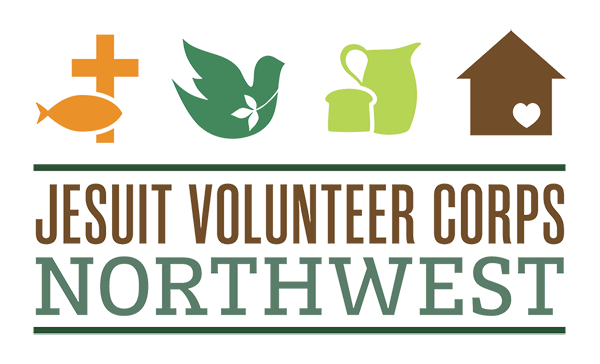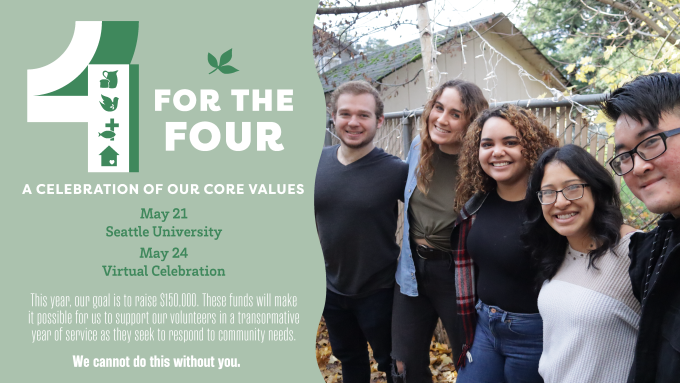Addressing Food Security at Wallace Medical Concern
Through JV AmeriCorps member Peter Fink’s (’17-18 Gresham, OR) experience serving as Community Health Specialist, he has learned that food insecurity greatly affects his patients’ health and well-being. Wanting to better understand and respond to this issue, Peter focused a recent project on designing and implementing a workflow to more efficiently track and address food insecurity for patients at Wallace Medical Concern. Read his story below.

As an American Studies and PreMed major in college, I have always been interested in the intersection between society and health; clearly, the social and physical environments we construct have profound impacts on our health and well-being. Toward the end of my senior year of college, I decided to apply for a deferral for medical school in order to get more “boots on the ground” experience in healthcare and learn more about these social and physical environments before I hit the books. I wanted to gain a better understanding of our complicated insurance system, improve my competency in Spanish, and get experience interacting with the many social determinants of health. This led me to apply for the JV AmeriCorps Community Health Specialist position at the Wallace Medical Concern, a federally-qualified health center in one of Eastern Portland’s poorest neighborhoods.
My time serving at Wallace Medical Concern has certainly highlighted for me that promoting health extends far outside the doctor’s office. Specifically, one of the most basic factors in people’s day-to-day health is simply having enough healthy food to eat. Food insecurity has wide ranging impacts on patients’ overall well-being, causing problems like malnourishment, chronic diseases like hypertension and diabetes, job insecurity, and behavioral health issues. In Oregon, 1 in 7 of our neighbors is food insecure; that is, you are more likely to meet someone who is food insecure than you are likely to meet someone who is left-handed. Right from the beginning of my service here, I knew I wanted to make a contribution toward addressing food security in our patient population, as I felt it was a feasible way to address more complicated issues we see more “upstream” from the problems themselves.

Thanks to great support from my Gresham community mates and supervisor, I was able to do a lot of research on how other clinics have most successfully tracked and addressed food security for their patients. Using advice from online resources, the Oregon Food Bank, and other local clinics, I helped create a workflow that involves different types of employees in our clinic and is both feasible to implement and effective in practice.
Essentially, whereas before we entered the names of food-insecure patients into an Excel spreadsheet to cold-call, we now have our medical providers enter this information directly into our electronic medical records and do a warm hand-off referral to me directly after the patient’s medical visit to discuss food resources. I can then use the geographic information system I made using free online software to identify which food pantry in the area is the closest, best option for the patient to access. In addition, I can also refer them to contacts we have at other agencies to apply for SNAP benefits and discuss how to cook and prepare more nutritious meals.
Though it’s easy for me, as an inexperienced 23 year old, to get daunted by grand ideals like “promoting for human dignity,” I have come to see that starting with the basics– in this case, simply addressing the very basic need for food as a prerequisite for a flourishing and dignified life— can lead to encouraging results and deep fulfillment. Although this new food tracking workflow is nothing grandiose, I am excited about its prospects for helping patients both economically and physically, and promoting dignity on a most fundamental and practical level.

